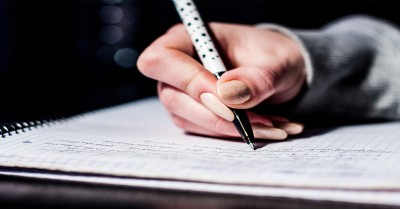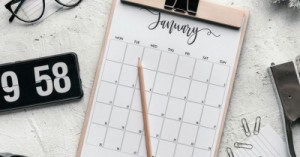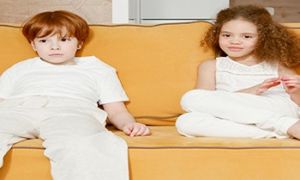As an Educator, it's important to assess and document children's learning. This refers to gathering and analysing information about what children know, can do and understand. It is part of a cycle that includes planning, documenting and evaluating children’s learning.
Once you have gathered the information, it needs to be interpreted to make informed decisions to prepare the environments and experiences for the children to engage in.
When completing documentation it's sometimes hard to think of the right words to use. The following will give you examples of writing prompts you can use to complete your written work.
These prompts can be used for all your writing needs. Such observation, learning stories. evaluations, reflections, reports and more.
Prompts to State Your Opinion
- In my opinion
- In my view
- From my viewpoint
- It seems to me that
- From my perspective
- It appears that
- I realise
- I imagine
- According to
- To me
- I think
- I believe
- To my way of thinking
- I suppose
- I feel
Prompts for cause and effect
- Similarly
- Likewise
- As with
- Like
- Equally
- In the same way
Prompts to Giving An Example
- For example
- Such as
- That is
- To illustrate
- For instance
- In other words
- Like
- Namely
- To paraphrase
Prompts to Emphasise
- Above all
- In particular
- Especially
- Significantly
- Indeed
- Notably
Prompts to Compare
- Similar to
- In common
- Either
- Neither
- Just as
- As
- Also
- In the same way
- At the same time
- Resemble
Prompts when contrasting
- However
- On the contrary
- Differ from
- Although
- Otherwise
- Alternatively
- But
- On the other hand
- Nevertheless
- Though
- Instead
- Even though
Prompts when Generalising
- Generally
- Overall
- In general
- It seems to me that
- All in all essentially
- All things considered
- Generally speaking
- On the whole
- I believe
- Basically
- As a rule
- For the most part
Prompts when expressing certainty
- Certainly
- Definitely
- No doubt
- Of course
Prompts when Expressing Partial Agreement
- More or less
- Up to a point
- In a way
- To some extent
- Almost
- So to speak
Prompts to summarise
- In short
- On the whole
- In other words
- Overall
- Generally
- In general
- In brief
You can use the above in conjunction with the following:
How Children Can Achieve EYLF Outcomes
How Children Can Achieve MTOP Outcomes
Using all the above will enable you to write written documentation efficiently and effectively. It is a necessity to document children's experiences as well as reflect upon the learning, which makes it visible to Educator and families and promotes shared learning.
Reference:
Key Words For Writing, Best British







 Here is the list of the EYLF Learning Outcomes that you can use as a guide or reference for your documentation and planning. The EYLF
Here is the list of the EYLF Learning Outcomes that you can use as a guide or reference for your documentation and planning. The EYLF The EYLF is a guide which consists of Principles, Practices and 5 main Learning Outcomes along with each of their sub outcomes, based on identity,
The EYLF is a guide which consists of Principles, Practices and 5 main Learning Outcomes along with each of their sub outcomes, based on identity, This is a guide on How to Write a Learning Story. It provides information on What Is A Learning Story, Writing A Learning Story, Sample
This is a guide on How to Write a Learning Story. It provides information on What Is A Learning Story, Writing A Learning Story, Sample One of the most important types of documentation methods that educators needs to be familiar with are “observations”. Observations are crucial for all early childhood
One of the most important types of documentation methods that educators needs to be familiar with are “observations”. Observations are crucial for all early childhood To support children achieve learning outcomes from the EYLF Framework, the following list gives educators examples of how to promote children's learning in each individual
To support children achieve learning outcomes from the EYLF Framework, the following list gives educators examples of how to promote children's learning in each individual Reflective practice is learning from everyday situations and issues and concerns that arise which form part of our daily routine while working in an early
Reflective practice is learning from everyday situations and issues and concerns that arise which form part of our daily routine while working in an early Within Australia, Programming and Planning is reflected and supported by the Early Years Learning Framework. Educators within early childhood settings, use the EYLF to guide
Within Australia, Programming and Planning is reflected and supported by the Early Years Learning Framework. Educators within early childhood settings, use the EYLF to guide When observing children, it's important that we use a range of different observation methods from running records, learning stories to photographs and work samples. Using
When observing children, it's important that we use a range of different observation methods from running records, learning stories to photographs and work samples. Using This is a guide for educators on what to observe under each sub learning outcome from the EYLF Framework, when a child is engaged in
This is a guide for educators on what to observe under each sub learning outcome from the EYLF Framework, when a child is engaged in The Early Years Learning Framework describes the curriculum as “all the interactions, experiences, activities, routines and events, planned and unplanned, that occur in an environment
The Early Years Learning Framework describes the curriculum as “all the interactions, experiences, activities, routines and events, planned and unplanned, that occur in an environment


